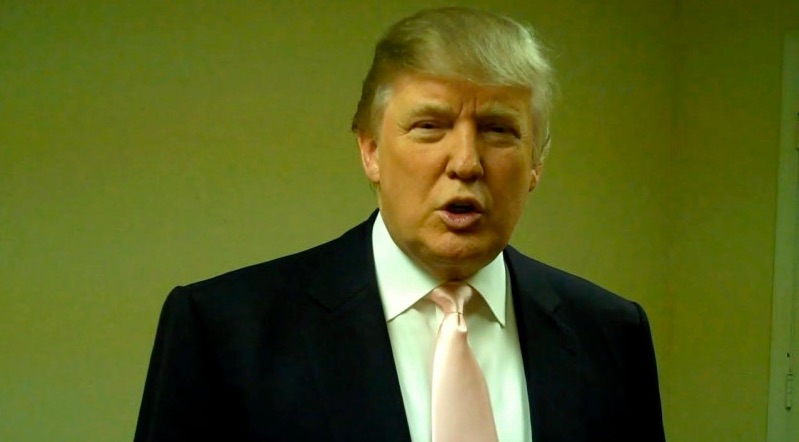I continue to believe this video contains perhaps the most revealing statement Trump ever made about birtherism. It’s video from an interview we did with Trump back in April of 2011. Watch after the jump.
Former TPMer Evan McMorris-Santoro did the interview in Palm Beach, Florida on April 16th 2011 and Senior Editor Catherine Thompson resurfaced it on Friday. In the video, Trump is digging at former House Majority Leader Eric Cantor (R) for criticizing him about embracing birtherism. He has this moment of near total transparency about why Cantor should watch out about criticizing birthers. In a word, birtherism sells.
As Trump put it in his own words, “people love this issue, especially in the Republican party.”
Here’s the video, with some comments below.
Back in February I talked about the concept of ‘nonsense and hate debt’ which the GOP had built up over the course of many years. In his own clownish but intuitively insightful way, Trump realized that the GOP was like a hopelessly leveraged business or overextended organization which could be decapitated and taken over by a reckless opportunist who would exploit its vulnerabilities and maximize its true value.
I put it this way in February …
The truth is virtually Trump’s entire campaign is built on stuff just like this, whether it’s about mass deportation, race, the persecution of Christians, Obamacare, the coming debt crisis and a million other things. At the last debate, Trump got pressed on his completely ludicrous tax cut plan. He eventually said growth (which if you calculate it would need to be something like 20% annual growth on average) would take care of the huge budget shortfall it created. But Republicans can’t really dispute this point since all of Republican campaign economics is based on precisely the same argument. What about Obamacare? Can Marco “Establishment” Rubio really get traction attacking Trump for having no specific plan to replace Obamacare when Republicans have spent the last five years repeatedly voting to repeal Obamacare without ever specifying a plan to replace it with? On each of these fronts, the slow accumulation of nonsense and paranoia – ‘debt’ to use our metaphor – built into a massive trap door under the notional GOP leadership with a lever that a canny huckster like Trump could come in and pull pretty much whenever. This is the downside of building party identity around a package of calculated nonsense and comically unrealizable goals.
Birtherism is similar, perhaps the preeminent example. No establishment Republican ever openly embraced birtherism. The elected officials who did were generally backbenchers or people on the fringe of the party. But the leaders aggressively cultivated the belief that Obama was fundamentally an outsider in America, possibly a foreigner, possibly a Muslim. At the most fundamental level, the root drive of the birther conspiracy theory, Obama was black and thus by definition an outsider to the America many base Republicans, the people we now know as Trumpers, see slipping away. Some Republicans cultivated this fabric of beliefs, others simply passively benefited from it while keeping their own hands more or less clean. But the appetite for it was there; and it grew. Just as Republicans stoked hatred of Obamacare without any realistic way of getting rid of it or any plan to replace it, birtherism and the larger penumbra of Obama delegitimization became more entrenched with the disaffected base of the Republican party. They built up hunger they had no intention or ability to satisfy.
As Trump said, “people love this issue.”
Trump’s angle was simply to give them what they wanted. No holds barred. The full birther assault. Folks like Cantor could criticize Trump as not serious. But they were living in a house increasingly built on equally unserious ideas. What Trump did with birtherism was no different from what he later did with anti-immigrant animus in the GOP. He offered to satiate the appetite Republicans had been stoking. When he arrived they had nothing to fight him with. Their supporters – not all, but a large plurality – more or less instantly abandoned them and joined Trump. That’s the story of the 2016 GOP primary cycle.






